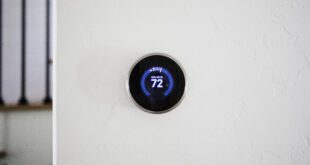No matter if you live in a brand new building or older home, there is no valid reason why you should suffer through extreme winters and sweltering summer temperatures. Living in homes built before the 80s could require some upgrades related to energy efficiency. Somewhere along the vivid 80s, nature activists succeeded at making insulation mandatory. Adjusting your home to this rule will also increase your comfort. To add, you will also experience major money savings from 10% all the way up to 50% on utility bills.
However, many homeowners want to know the exact amount of money they will save. But there is no unique answer to that universal question. The sum of money saved for the insulation will depend on the location you live in, type of your HVAC system and the insulation type.
So, does the insulation affect your bills so much?
Well, it does magic in preventing heated or cooled air slip through surfaces like walls, roofs, attics or ducts. It is an easy equation: a proper insulation prevents the warm air from escaping in the winter and cold air from slipping during the summer. Therefore, the more air you save, the less conditioning you need, and the result is lower energy consumption.
Are there more types of insulation?
R-value is a crucial term when it comes to insulation. It represents thermal resistance or, in other words, the capability of heat to transfer the cool or hot. Knowing that not everyone is familiar with the insulation, we simplify it further: the more significant the number next to R is, the more efficient type of insulation you possess. For instance, tight small spaces like insides of walls demand a higher R-value insulation while areas such as attics can do good with thicker or more layers.
Generally speaking, more insulation means bigger savings: but just usually. There is a particular line which shouldn’t be crossed because you will spend more on buying material than you will profit from lower consumption bills. When will this happen? Again, it all depends on various factors, and the most prominent one is the location of your property. We highly recommend to check official sites of the US energy departments and look for the information related to your zip line and insulation.
Insulation of bigger spaces: floors, attics, walls, roofs
The main surfaces that protect your home are walls, floors, attic and your roof. These are acting as outer shells that prevent outside temperatures from affecting the interior air. High-quality insulation automatically means that less energy is tossed away on the heating and cooling of your home. One of the most critical components is the roof.
Seal it up: leaking of the air
The walls without an insulation are disastrous, but even the quality insulated walls can experience cracking. This means that eventually, air will be able to slip through small gaps. Most of the times gaps or cracks can be found around the doors and windows, so pay special attention to those vulnerable spots. Caulking, for instance, is a good way to get rid of those small problems. In older homes, it is almost impossible to completely solve the problem of cracking due to obsolete construction methods. So, if you live in an old building or house, consider investing in quality PVC windows, doors, insulation and roofing system.
Problematic Insulating Ducts
Homes equipped with the central heating or AC units use duct systems. One of the prominent and often occurring issues are leaking ducts that can lower the entire energy efficiency of your home by 20 percent. Check the tubes regularly and seal them to keep the cool and warm air in the right way.
Reflective Insulation
Most insulating systems work on the physical principle, meaning they physically block heat slipping and transfer using various materials as barriers. Development of science brought attention to reflective insulation also known as a radiant barrier. Reflective insulation is installed on the floors in the attic, so that is could reflect the heat that enters due to the hot roof.
 Alternative Energy HQ solar power for homes, wind energy, and bio fuel issues
Alternative Energy HQ solar power for homes, wind energy, and bio fuel issues







